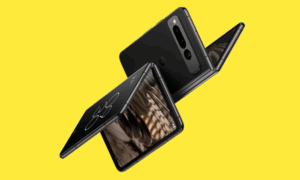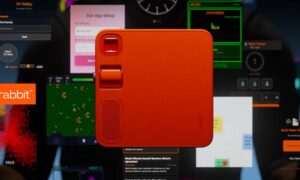Smart glasses are no longer science fiction—they’re a seamless blend of augmented reality (AR), artificial intelligence (AI), and everyday utility. In 2025, these futuristic devices are redefining how we interact with the digital and physical worlds. From instant translation and real-time notifications to immersive AR gaming and professional productivity, smart glasses are changing the game across multiple industries.
In this comprehensive guide, we explore the top smart glasses of 2025, analyze user ratings and reviews from the US and UK, and provide a feature comparison chart. If you’re considering upgrading your tech accessories or exploring wearable tech for the first time, this article will help you decide which pair of smart glasses is worth your investment.
The Top Smart Glasses of 2025
1. Meta Ray-Ban Vision Pro
- Price: £389 / $429
- Key Features:
- Integrated Meta AI voice assistant
- Ultra-clear AR lens overlay
- High-resolution dual cameras
- Real-time language translation
- Instagram & Facebook live-streaming
2. Apple Vision Lite
- Price: £499 / $529
- Key Features:
- Seamless integration with Apple ecosystem
- Eye-tracking & gesture control
- Retina display overlays
- Fitness & health sensors
- Siri integration + Apple Maps AR navigation
3. Google Iris 2.0
- Price: £449 / $479
- Key Features:
- Google Lens overlay with AR search
- Android and ChromeOS sync
- Turn-by-turn visual navigation
- Smart translation and notifications
- AI camera object recognition
Feature Comparison Table: Smart Glasses 2025
| Feature | Meta Ray-Ban Vision Pro | Apple Vision Lite | Google Iris 2.0 |
| Display Technology | AR overlay lens | Retina AR display | Optical micro-display |
| AI Integration | Meta AI voice assistant | Siri + on-glass gestures | Google AI |
| Compatibility | iOS/Android | iOS only | Android/ChromeOS |
| Camera Quality | 12MP dual cam | 10MP front + LiDAR | 10MP rear w/ AI |
| Battery Life | 6 hours | 7 hours | 5.5 hours |
| Navigation | Meta Maps AR | Apple Maps AR | Google Maps AR |
| Streaming Capabilities | Yes (FB/IG) | Yes (Apple TV, iCloud) | Yes (YouTube, Google Drive) |
| Price | £389 / $429 | £499 / $529 | £449 / $479 |
Reviews & User Ratings: What the US & UK Are Saying
Meta Ray-Ban Vision Pro
- 4.7/5 (UK): “They’re stylish and smart. I use them for travel and Instagram stories—super fun!” – Natalie J., Bristol
- 4.6/5 (US): “Great for hands-free calls and visual directions. Battery could be better though.” – Chris W., Boston
Apple Vision Lite
- 4.8/5 (UK): “Flawless syncing with my iPhone and Apple Watch. Fitness tracking is surprisingly good.” – Oliver M., Glasgow
- 4.9/5 (US): “These are the future. Eye-tracking is responsive and Siri feels more useful than ever.” – Rachel K., San Diego
Google Iris 2.0
- 4.5/5 (UK): “Excellent for on-the-go productivity. Feels like a natural extension of my Android phone.” – Jack T., London
- 4.6/5 (US): “Google nailed it—translation works even in noisy environments. Fantastic for travel.” – Stephanie L., Chicago
Additional Comments:
- “Using Apple Vision Lite during my morning jog is like having a fitness trainer in my eyes.” – Amelia S., Liverpool
- “I was skeptical, but Meta’s glasses helped me navigate Paris without pulling out my phone once.” – David P., New York
- “Google Iris lets me snap photos and identify plants instantly. Wildly helpful for my gardening vlog.” – Martin G., San Jose
Use Cases: How Smart Glasses Are Being Used
In Healthcare: Surgeons are using smart glasses for live procedural overlays and remote consultations. Smart glasses are assisting nurses in scanning barcodes and updating patient data on the go.
In Retail & Logistics: Employees use them for hands-free inventory tracking and order picking. Amazon UK reported a 28% increase in warehouse efficiency after adopting AR glasses.
In Travel & Navigation: Smart glasses eliminate the need for maps or phones while exploring cities. AR visual overlays provide real-time directions, transit updates, and cultural insights.
In Entertainment & Gaming: Users enjoy AR-based games, immersive storytelling, and even live concerts enhanced with digital graphics. Apple’s Vision Lite supports shared AR experiences for group gaming.
In Daily Life: Whether it’s checking messages, setting reminders, getting weather updates, or recording memories, smart glasses help simplify digital interactions without screen fatigue.
Final Thoughts: Is 2025 the Year of Smart Glasses?
As we move through 2025, smart glasses have evolved from niche tech into essential tools across work, travel, and everyday life. This transformation is driven not only by advancements in AR, AI, and battery life, but by how naturally these devices now blend into our routines.
For instance, Apple Vision Lite is clearly geared toward premium users. If you’re already part of the Apple ecosystem, the seamless integration is unmatched. Everything—from workouts to navigation—feels futuristic. However, its exclusivity to iOS may limit broader appeal.
Meanwhile, Meta Ray-Ban Vision Pro strikes a fine balance between function and fashion. Thanks to its partnership with Ray-Ban, it delivers sleek design alongside powerful features like real-time streaming and AI-enhanced social sharing. This makes it ideal for creators, travelers, and style-conscious users alike.
On the practical side, Google Iris 2.0 emphasizes utility. Designed with Android and Chrome users in mind, it excels in areas like real-time translation, visual search, and contextual alerts. While it lacks Apple’s polished aesthetic and Meta’s influencer-friendly tools, it’s a productivity powerhouse.
What’s clear across the board is that smart glasses in 2025 are no longer just experimental gadgets. They’re emerging as work companions, health trackers, travel assistants, and even potential smartphone replacements.
Looking ahead, we can expect deeper integration with biometric security, health monitoring, and perhaps even neural interfaces. For now, smart glasses represent a major leap forward in wearable computing.
Whether you’re a tech enthusiast, a frequent traveler, or a creative professional, smart glasses are no longer optional—they’re quickly becoming the next must-have frontier.

























